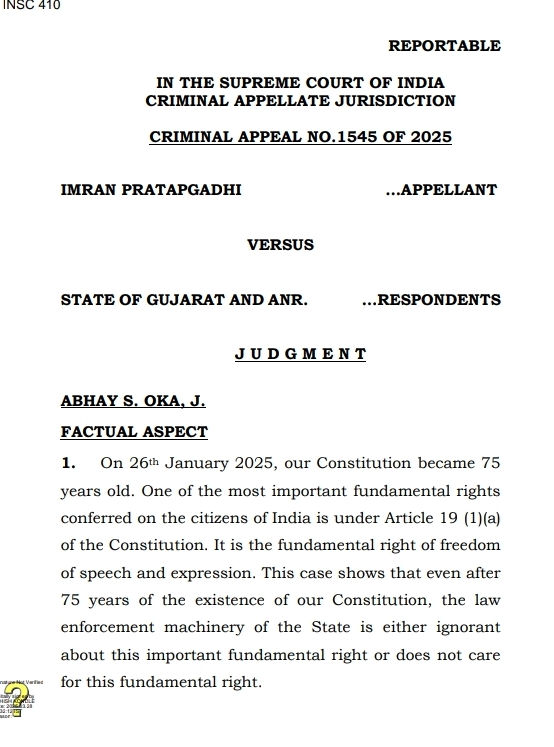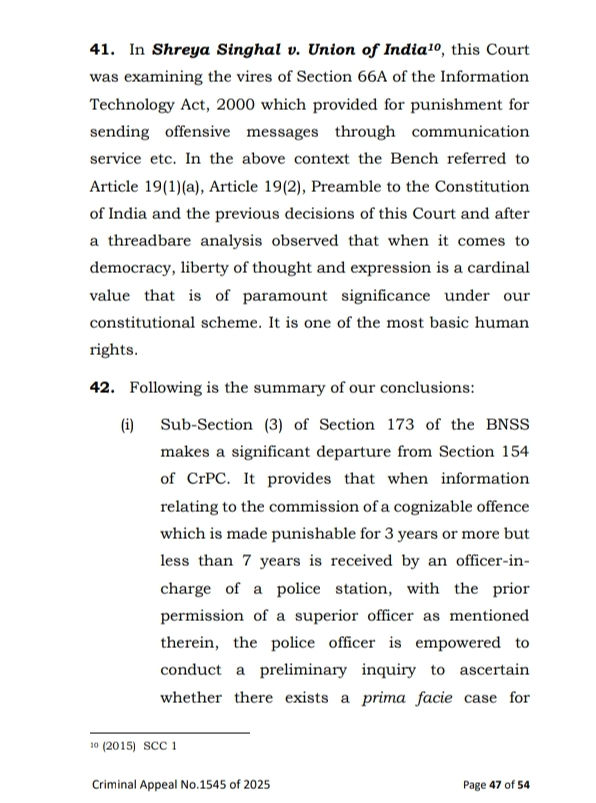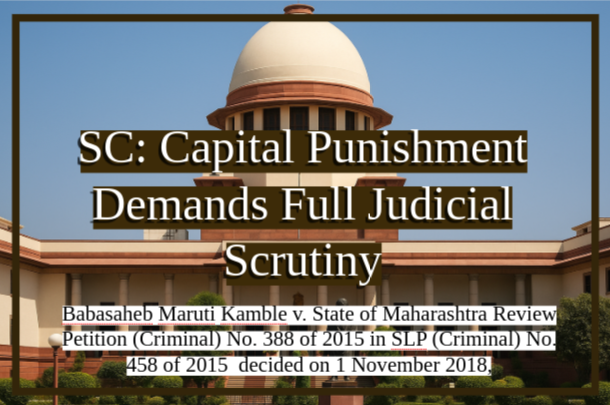Supreme Court Affirms Free Speech as Pillar of a Civilized Society
- M.R Mishra

- Mar 30, 2025
- 3 min read
In a landmark judgment delivered on March 28, 2025, the Supreme Court of India quashed an FIR against Rajya Sabha MP Imran Pratapgadhi, reaffirming the inviolable essence of free speech in a democracy.
The case, Imran Pratapgadhi v. State of Gujarat, centered on a poem recited in a video shared on social media, which the Gujarat Police alleged incited communal disharmony.
The Court’s ruling not only shields artistic expression from state overreach but also reiterates the judiciary’s constitutional duty to act as a sentinel for fundamental rights.

The Poem and the Politics of Perception
The controversy arose from a video of a mass wedding event in Jamnagar, Gujarat, where Pratapgadhi recited a poem in Urdu. The verses, translated by the Court, conveyed a message of non-violent resistance: “If the fight for our rights is met with injustice, we will meet that injustice with love.”
The poem’s imagery tears as flames, warnings to “blood-thirsty” rulers, and the symbolic “throne” was interpreted by the complainant as inflammatory.
The FIR invoked provisions of the Bharatiya Nyaya Sanhita (BNS), including Sections 196 (promoting enmity), 197 (prejudicing national integration), and 302 (wounding religious feelings).
The High Court refused to quash the FIR, citing the Neeharika Infrastructure precedent that discourages interference during “nascent” investigations.
The Supreme Court, however, dismantled this reasoning threadbare.
What Court Said?
The Court’s judgment, authored by Justice Abhay S. Oka, dissected the poem’s language and context. It concluded that the verses were devoid of any reference to religion, caste, or community. Instead,
they were a symbolic critique of injustice and a call for peaceful resistance.
Key legal takeaways include:
The poem’s abstract references to “thrones” and “blood-thirsty” entities were deemed generic, lacking any direct incitement against specific groups.
The Court emphasized that vague allusions to power structures cannot be conflated with promoting disharmony.
Quoting precedents like Manzar Sayeed Khan and Patricia Mukhim, the Court underscored that offences under Sections 196 and 197 BNS require intent to incite hatred.
The poem’s message of love and sacrifice negated any malicious intent. Further, Justice Oka invoked Justice Vivian Bose’s timeless standard: speech must be judged by the “reasonable, strong-minded individual,”
not the “weak and vacillating.
The Court critiqued the police’s failure to conduct a preliminary inquiry under Section 173(3) of the Bharatiya Nagarik Suraksha Sanhita (BNSS), which mandates scrutiny before registering FIRs in free speech cases. This provision, a departure from the CrPC, aims to prevent the weaponization of law against dissent.
Police, the Court stressed, must balance their duty to investigate with their constitutional obligation to protect free expression.
The Supreme Court rebuked the Gujarat High Court for its cursory analysis. Merely noting that the poem “indicates something about the throne” and “disturbs social harmony” was deemed insufficient. The Court clarified that even at an early stage, courts must intervene if allegations are patently frivolous a principle solidified in State of Haryana v. Bhajan Lal.
The Court quoted Justice D.Y. Chandrachud’s 2001 ruling in Anand Dighe, which defended the right to critique even Mahatma Gandhi through art: “Popular perceptions cannot override constitutional values.”

It also echoed Shreya Singhal’s ethos, where the Court struck down Section 66A of the IT Act, affirming that free speech is the “cardinal value” of democracy.
The Pratapgadhi judgment is a timely reminder of India’s constitutional promise. In an era where dissent is often equated with disloyalty, the Supreme Court has drawn a red line: the state cannot criminalize metaphors. The ruling fortifies the space for artists, writers, and activists to challenge power without fear.
As the Court poignantly observed, “If every criticism of the State is stifled as ‘prejudicial to national unity,’ democracy will not survive.” Seventy-five years after the Constitution’s adoption, this verdict ensures that the flame of free speech—much like the poem’s symbolic “tears as flames”—continues to illuminate the path of justice.







Very good 👍